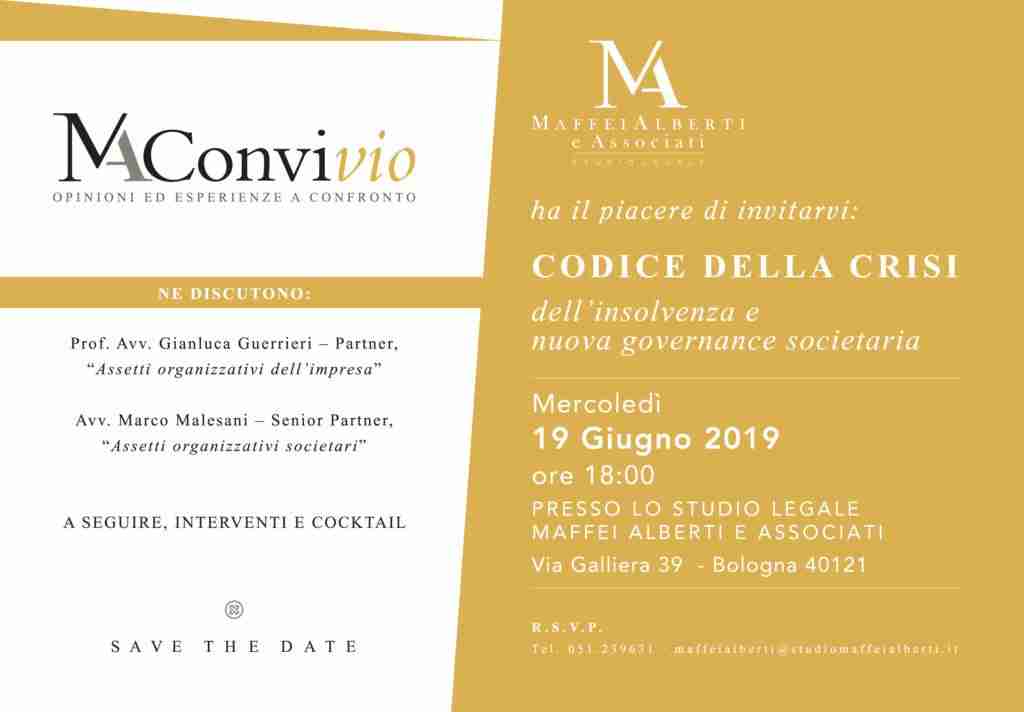On Wednesday, 19 June 2019, at the offices of the law firm Maffei Alberti e Associati

On 19 June, Studio Maffei Alberti e Associati welcomed lawyers, chartered accountants and business representatives on the occasion of the launch of MA Convivio, a series of meetings to discuss a number of hot topics in the field of commercial law, the first being the developments introduced by the Business Crisis Code.
In particular, during the first meeting, Prof. Alberto Maffei Alberti introduced the two speakers, Marco Malesani and Gianluca Guerrieri, who elaborated on a range of corporate governance models following the recent reform of the insolvency law.
Prof. Guerrieri addressed the issue of functional structures to ensure the early detection of crisis situations following the entry into force – on 16 March 2019 – of Article 2086 of the Italian Civil Code, as amended by the Crisis Code. An overview was provided of the possible scenarios arising from a violation of the provision: the first to be represented, though not immediate, was the formal enforcement of the model, while the second one was the compensation remedy, for which companies, directors and statutory auditors would be liable towards any party that claims damages as a result of the breach of the requirements. The presentation continued with the definition of crisis pursuant to Articles 2 and 13 of the Business Crisis Code and concluded with the identification of specific aspects of particular interest: the option to prepare a formal model describing the appropriate structures in place, the formalisation of information flows between the actors involved in the management of the company, appropriate procedures to ensure compliance with the model and the monitoring requirements in place with respect to capital, financial and cash flow data.
On the other hand, Marco Malesani’s presentation illustrated the changes introduced by the Business Crisis Code to the corporate governance models of Italian-law limited liability companies and partnerships that assign the management of the company exclusively to directors, noting, in particular, the inconsistency of the reform with reference to specific aspects provided for in the previous regulations. With reference to what has been defined as “a deep scar on the company law system“, two possible solutions were proposed: a “nullifying” interpretation of the legislative intervention, vitiated by misuse of delegation authority and, thus, unconstitutional, and a second so-called “reductionist” approach, according to which the changes made would not affect the operational management of the company, requiring only the directors to create the appropriate functional structures, and, therefore, considering all of the provisions that would appear to have been implicitly repealed to be still applicable.
